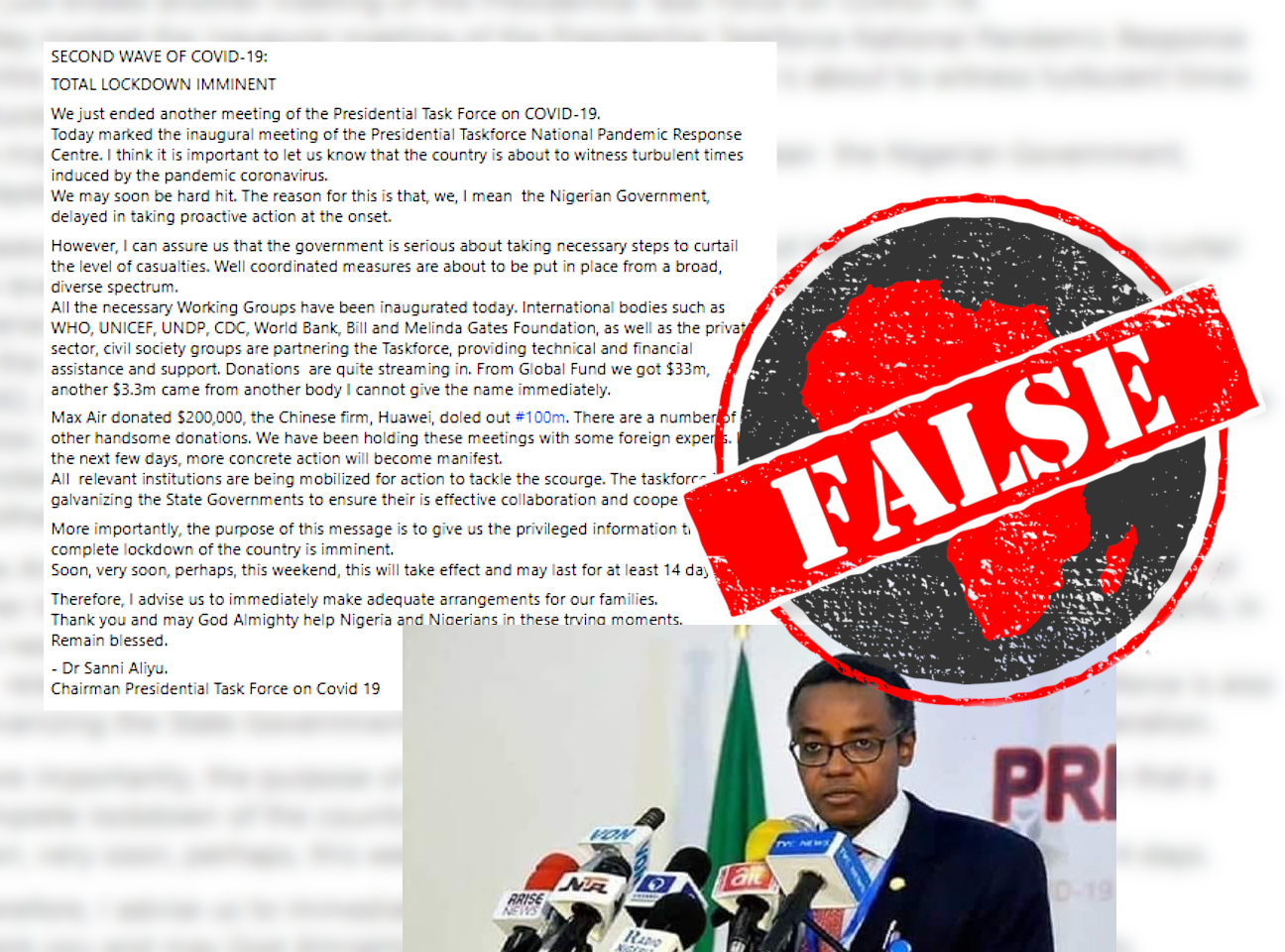“Second Wave of Covid-19, total Lockdown is imminent,” reads the headline of a Facebook post shared in Nigeria. A similar post says: “Another lockdown looming, Dr Aliyu, chairman presidential task force on Covid-19 speaks”
The posts, published mid-January 2021, claim the Nigerian government has announced that a lockdown is “imminent” because of the second wave of the Covid-19 pandemic.
Part of it says “the purpose of this message is to give us the privileged information that a complete lockdown of the country is imminent. Soon, very soon, perhaps, this weekend, this will take effect and may last for at least 14 days”. The posts advise Nigerians to make adequate arrangements in preparation for this.
The posts attribute this announcement to “Dr Sani Aliyu”, apparently the chairperson of the “Presidential Task Force on Covid-19”. Are they accurate?

Dr Sani Aliyu urges Nigerians to ignore lockdown rumours
On 9 March 2020, Nigerian president Muhammadu Buhari established a presidential task force (PTF) to coordinate and oversee governmental efforts to contain the spread of the Covid-19 pandemic in Nigeria.
According to the presidency’s official website, Dr Sani Aliyu is the national coordinator, not the chair, of the PTF.
Boss Mustapha, who is also the secretary to the federal government, is the chair of the task force.
In a video posted to Twitter by the PTF on 14 January, Aliyu dismissed the rumours of a new lockdown.
He said the posts on social media about a lockdown were “absolutely not true” and should be ignored.
He also asked Nigerians to continue to abide by “proven non-pharmaceutical interventions” to prevent the spread of Covid-19, such as wearing face masks in public, washing hands regularly, and keeping physical distance from others.
Republish our content for free
For publishers: what to do if your post is rated false
A fact-checker has rated your Facebook or Instagram post as “false”, “altered”, “partly false” or “missing context”. This could have serious consequences. What do you do?
Click on our guide for the steps you should follow.
Publishers guideAfrica Check teams up with Facebook
Africa Check is a partner in Meta's third-party fact-checking programme to help stop the spread of false information on social media.
The content we rate as “false” will be downgraded on Facebook and Instagram. This means fewer people will see it.
You can also help identify false information on Facebook. This guide explains how.





Add new comment